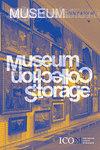非殖民化、本土化和数字化回报:来自澳大利亚的两个案例研究
IF 0.4
4区 艺术学
0 ART
引用次数: 0
摘要
本文以澳大利亚北领地东北阿纳姆地的Yolngu社区利益相关者领导的两个数字回报项目为中心。这两个项目都展示了Yolngu人如何在平权行动框架下动员去殖民化和本土化的概念,以克服过去的弊端,并带来文化复兴和主权的变革环境。这两个项目都是澳大利亚和国际上数字回归倡议的先驱模式。讨论首先简要介绍了遣返和数字“档案”形式的文献遗产(包括收集图像和来源数据、照片、电影和录音)之间的一些关键区别。然后概述了Yolngu利益相关者在建立文化档案项目中采取的两种不同但相关的途径,每一种途径都以通过与博物馆和大学的合作伙伴关系来实现博物馆藏品的非殖民化和本土化为中心。这些讨论固有的观点是,非殖民化是复杂的、多地点的和多焦点的。文章的结论是,博物馆需要更积极地将社区与藏品重新联系起来。与第一民族和前殖民地人民合作,恢复因殖民而直接丧失的文化知识,是向前迈进的重要一步。本文章由计算机程序翻译,如有差异,请以英文原文为准。
Decolonisation, Indigenisation and Digital Returns: Two Case Studies from Australia
Abstract This article centres on two digital return projects led by Yolngu community stakeholders from North East Arnhem Land in the Northern Territory of Australia. Both projects illustrate how concepts of decolonisation and Indigenisation have been mobilised by Yolngu people within an affirmative action framework to overcome past malpractices, and to bring about a transformative environment of cultural reclamation and sovereignty. Both projects have served as pioneering models for digital return initiatives in Australia and internationally. The discussion begins by briefly addressing some of the critical differences between repatriation and the return of documentary heritage in the form of digital ‘archives’ (including collection images and provenance data, photographs, film and sound recordings). It then outlines two different but related pathways taken by Yolngu stakeholders in establishing cultural archiving projects, each centred on decolonising and indigenising museum collections through collaborative partnerships with museums and universities. Inherent in these discussions is the idea that decolonisation is complex, multi-sited and multifocal. The article concludes by arguing that museums need to be more proactive in reconnecting communities with collections. Working collaboratively with First Nations and formerly colonised peoples to restore cultural knowledge lost as a direct result of colonisation is a vital step for moving forward.
求助全文
通过发布文献求助,成功后即可免费获取论文全文。
去求助
来源期刊

MUSEUM INTERNATIONAL
ART-
CiteScore
0.60
自引率
0.00%
发文量
0
期刊介绍:
In its new revised form Museum International is a forum for intellectually rigorous discussion of the ethics and practices of museums and heritage organizations. The journal aims to foster dialogue between research in the social sciences and political decision-making in a changing cultural environment. International in scope and cross-disciplinary in approach Museum International brings social-scientific information and methodology to debates around museums and heritage, and offers recommendations on national and international cultural policies.
 求助内容:
求助内容: 应助结果提醒方式:
应助结果提醒方式:


